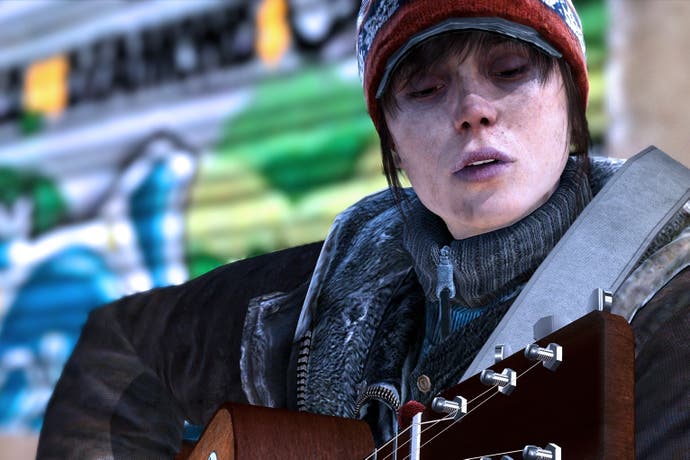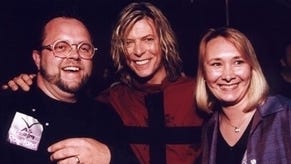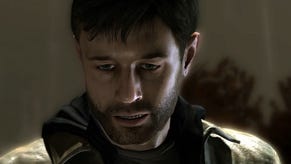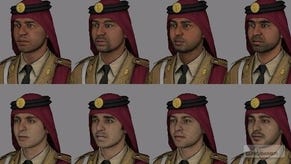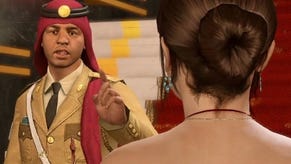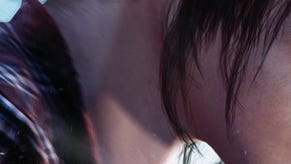Beyond: Two Souls preview: David Cage on life after the Rain
Plus: PlayStation 4! Bullet time! Americo-centrism!
"PlayStation 4? It's pink," says David Cage. "It's shaped like a tower and it's about one metre high."
Say what you like about the Quantic Dream boss (lots of people do, mainly on Neogaf), you can't fault the man's linguistic skills. It's one thing to be good enough at a foreign language to be able say you like tennis and listening to records. It's another to be capable of banging on about epic, innovative and emotional interactive narrative experiences for a full 40 minutes. However, only the truly fluent can pull off sarcasm.
"And it has wings," he adds.
No wonder the man is fed up. It's the final hour of a press event at QD's Paris headquarters. According to the "media briefing schedule", Cage has spent the last two days being questioned by journalists from France, Italy, Spain, Portugal, Germany, Greece, Austria, Switzerland, "Nordics", Belgium, Poland, Russia, the UK, the US, Japan, Australia and Lewisham. It's a safe bet he's spent a good proportion of that time answering stupid questions about PlayStation 4, in both his native French and flawless English.

Cage didn't invite us here to talk about PS4. He invited us to gawp at his new PlayStation 3 game, Beyond: Two Souls. Like the studio's previous effort, Heavy Rain, it's billed as an epic, innovative and emotional interactive narrative experience, underscored by cinematic presentation and really believable hair. "But don't expect a clone," says Cage. "We wanted to make a different game, and this is exactly what we did."
Unlike Heavy Rain, and probably every other video game ever, Beyond is a Bildungsroman. For anyone who didn't also learn that word during a pub quiz last week, it's a coming-of-age story that explores how an individual's personality is defined by what happens to them. Here that individual is a character called Jodie Holmes, and the game covers her life between the ages of eight and 23.
"It's a story about growing, about how events in our life make us who we are," says Cage. "It's also a story about life, death and what's on the other side."
The twist is that Jodie has a link to an invisible entity she calls Aiden. (During the presentation, Cage refers repeatedly to him as "a ghost". He won't be drawn on exactly what Aiden is in our interview, though, and when asked whether we'll find out over the course of the game, simply says: "Hope so.") Players can switch control between the two characters at any time, which is handy, as Aiden can interact with the real world in ways Jodie can't - moving heavy objects, travelling through walls, taking possession of human bodies and so on.
"This thing is not just a power or a pet; it is a character with a personality," Cage explains. "It can be nice and protective, or possessive and jealous." In one scene we're shown, Aiden steals a cookie for an eight year-old Jodie from the jar that has been placed out of her reach. In another, he chokes a woman he perceives as a threat. We also see Aiden saving Jodie's life, more than once, and sometimes when she doesn't want to be saved.
"Female characters are probably easier to write for because they have a wider palette of emotions. They can cry, they can be very angry, they can be funny, they can be sexy..."
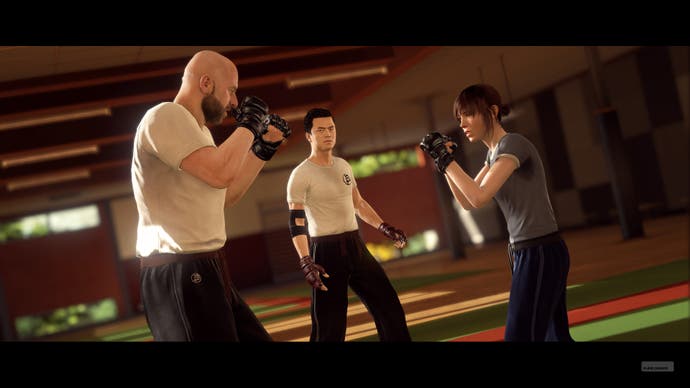
Jodie does not fit into the the mould of traditional video game heroes. Or even the mould of traditional video game heroines, which is Lara-shaped. But Cage isn't worried. "There is this strange idea that hardcore gamers are males who want to play with male characters because it makes them feel like real men," he says. "That they like very strong characters with big muscles, holding guns. I think that's a misconception."
There are plenty of games in this vein, Cage observes, "And that's cool, that's great. But gamers are cleverer than this industry seems to think. What is important is not so much the muscles or how big your boobs are. It's more interesting to see how appealing a character is, what their psychology is and how they resonate with the audience."
Plus, he says, women are all emotionally unstunted and expressive and that. "Female characters are probably easier to write for because they have a wider palette of emotions. They can cry, they can be very angry, they can be funny, they can be sexy... Males, they usually have a more restricted palette of emotions. At least that's the way I feel when I write."
As I wipe a tear from my glaring eyes while squirting Cage with the plastic flower in my lapel and showing him my bra, he reiterates that Jodie is not the only star of the show.
"Beyond is the story of two characters," he says. "It's the story of their relationship. It's about being tied to someone for all your life and having to cope with that, and accept it." Sounds like it's a game about being married, then, albeit to a silent invisible entity who can kill your enemies and nick biscuits. Which actually sounds ideal.
Jodie is played by Ellen Page, star of Juno, Inception and Homeless to Harvard: The Liz Murray Story. But, Cage is keen to point out, it wasn't about sticking a pin in IMDB. "I was not looking for a shiny name to put on the packshot. I was looking for a creative collaboration with talent," he says.
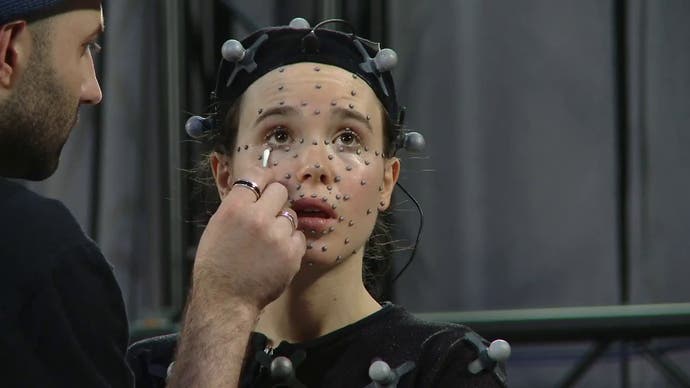
"We did not pay some actors in Hollywood to do a couple of voiceovers in a soundbooth... It was about scanning the face and body of these people to recreate their perfect clone in the game, in realtime 3D. We don't only have their look, we have their movements and their expressions. Their entire performance is recreated."
This was achieved by dressing the actors (who also include Willem Dafoe, playing scientist Nathaniel Dawkins) in mocap suits, then sticking an additional 90 markers on their faces. The voiceovers were recorded on-set, at the same time the physical performances were being filmed. "So we have an entire, consistent capture of the performance, which is something that has never been done in video games before, at that level," says Cage.
As far as he's aware, it's the largest performance capture project ever undertaken, involving 12 months of shooting, 300 characters and 23,000 animations. "And that's a number that is absolutely, totally insane," he says. "We realised that afterwards, unfortunately. It was a crazy amount of work."
Most games, Cage explains, are packed with loops and patterns, and rely on a bank of animations that are reused throughout. There's the door opening animation, the crouching down animation, the reloading animation and so on. While that's fine for action games, Quantic Dream is trying to make a game free from limitations and repetition.
"That means we need a specific animation for pretty much every single action in the game. If you open a door in an action game, you just open a door. In a narrative-driven experience, opening a door can be done in many different ways. You can be in your apartment just opening a door, and that's it. But if you fear what's on the other side, then it's a different way of opening the door."
Along with all those animations, Beyond features a new user interface based mainly around use of the analog sticks. Gone are Heavy Rain's big square button prompts indicating stuff the player can interact with, replaced by tiny white circles indicating stuff the player can interact with. These interactions are basic, even during hand-to-hand combat - we're shown how it's possible to make Jodie dodge and attack simply by pushing the right-hand stick in the relevant direction.
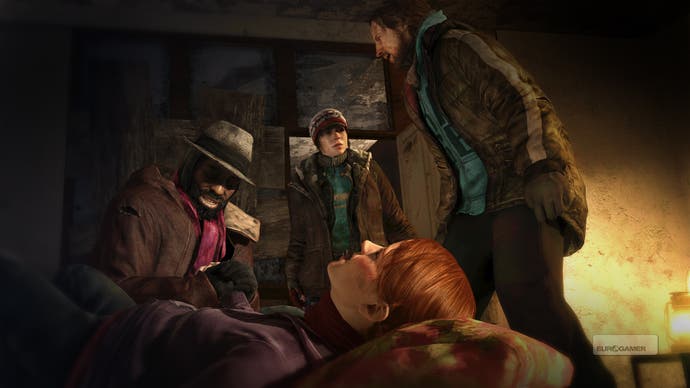
The aim was to make the interface "discreet, intuitive, fluid and as simple as possible," says Cage. "We're not big fans of very complex interfaces with tons of buttons you need to memorise. We think the best interfaces are the simplest." Fiver says he's one of those people who wins at Street Fighter by picking Chun-Li then pressing all the buttons while jumping.
In a further bid to pare down, Beyond doesn't feature any quick-time events. "We have a new system where there is no prompt any more. You just analyse what's happening on-screen and you know what you're supposed to do, without the game having to tell you, 'Please press this button.'"
To facilitate this, the action slows down at key moments, bullet time-style, so the player can process what's happening and make a decision. ("We still have a couple of prompts here and there, but no more than in a game like Tomb Raider or Uncharted.")
Cage is also promising the players will never do the same thing twice, which will come as a relief to Heavy Rain players who could have done without the endless bandaging. (He actually says "never do twice the same thing", which isn't flawless English, but that is the sort of thing only an unkind person would point out because they are jealous someone is better at their native language than them even though they have a degree in it.)
"Beyond is not based on patterns and levels. Each moment is different," says Cage, adding that the chase scene shown at E3 is the only chase scene in the game. "Each scene offers you a different challenge. Each scene is unique, like you see in a film."
He loves a good film, does David Cage. He loves watching them, he loves talking about them, he loves making video games that are a bit like them but you get to open the doors yourself. He has been described as the Alfred Hitchcock of video games. By me, just now. (Non-fans might describe him as the M. Night Shyamalan of video games, or possibly even the David J. Garfield, but they're probably just jealous.)
However, Beyond takes its inspiration not from The Birds or Psycho or the one that's a metaphor for sitting by a window wanking all day, but a more modern cinematic offering.
"The game's story is told in chronological disorder, like in the film Memento," says Cage. "It creates an interesting dynamic. Sometimes you can see the consequences of something before seeing the cause."
In other words, you might play one scene as the teenage Jodie, then the next with her as a child, then as an adult. One scene could feature a character who is upset with Jodie, but the reasons why won't be revealed until three or four scenes later.
"It's about asking the player not just to watch the story passively, but contribute to the story at a macro level - to try to understand it and put the pieces of the puzzle together," Cage says. "It creates another layer of interactivity that is quite interesting."
"We thought the limits for PS3 were what we discovered on Heavy Rain, but we realised they're a little bit further away. We could implement things we thought were initially impossible..."
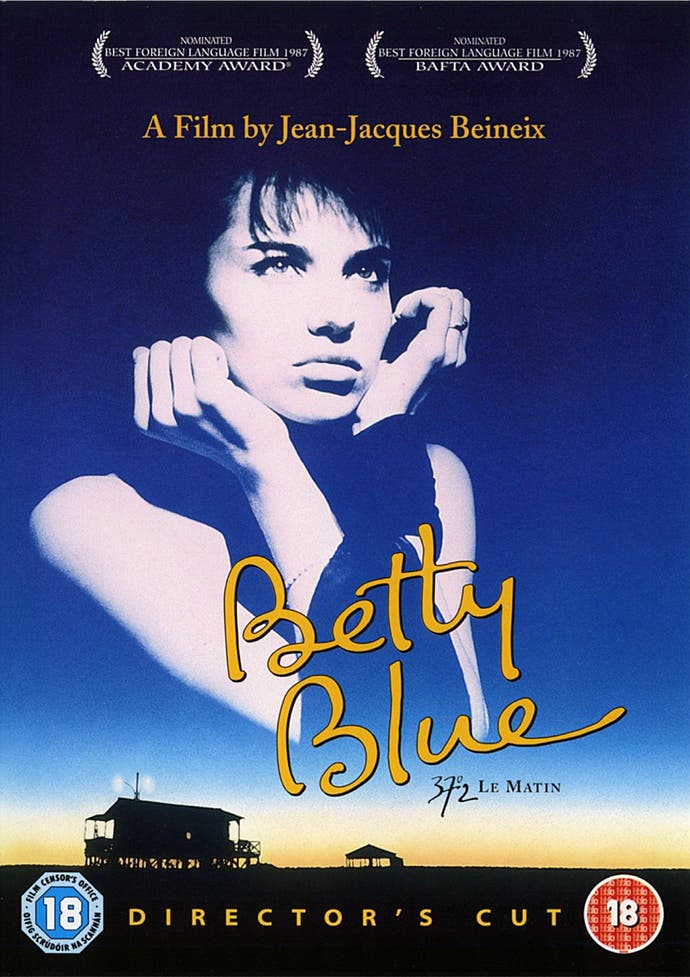
Which is all very jolly. But here we are, talking to a Frenchman in his French office, about the French game his French employees are producing, in France. And yet, like all his other work, the game is set in America. Qu'est ce quelque que, mon chapeau?
"My games take place in the US, but it's not actually the real country called the United States," Cage replies. "It's more a fantasised version of this country that everybody's familiar with. Everybody knows what cops look like, what buildings look like, what the rules of this world are."
If the game was set in France, Cage reckons, "I'd have to explain a bunch of things to an international audience - how things work in France, what they look like, et cetera. So it's more convenient. It's just the background of the story, it's not the topic."
"But I would be excited to work on a game taking place in a different country. Maybe even Japan. I think that culture is very appealing, and it's not mine, so that would open the possibility for discovery and interpretation. Why not?"
Cage sighs before answering his own question. "Then people would ask me why it doesn't take place in the US, because all games take place in the US. You know, whatever you do, there is always someone asking you why you don't do otherwise..."
"Usually me," I say. He laughs too hard.
"What's PlayStation 4 like?" I ask. Cue sarcasm.
The thing is, Cage did set himself up as an ambassador for the Sony's new toy at the PS4 press conference. Around three days into the month-long non-unveiling, he appeared on stage to talk about how films were rubbish when they were silent, but then technology made them good. (Because Orson Welles might have described Buster Keaton's The General as "the greatest comedy ever made", but how things might have been different if he'd lived to see Caddyshack II.)
With PlayStation 4, Cage said back then, "We can take you to places you've never been before, and make you feel emotions you have never felt in real life." Thanks to the machine's amazing technical capabilities, he added, "We are now only limited by our imaginations." The point was illustrated by a video of an old man's head and a graph of some polygon counts.
Today, though, Cage is busy bigging up the console's predecessor: "We thought the limits for PS3 were what we discovered on Heavy Rain, but we realised they're a little bit further away. We could implement things we thought were initially impossible... We thought Heavy Rain looked great at the time, but when you compare it with Beyond, it almost looks like two games on two different platforms."
Again, all very jolly. But what's PlayStation 4 like? What are these things he will now be able to do that he wasn't able to do with PS3?
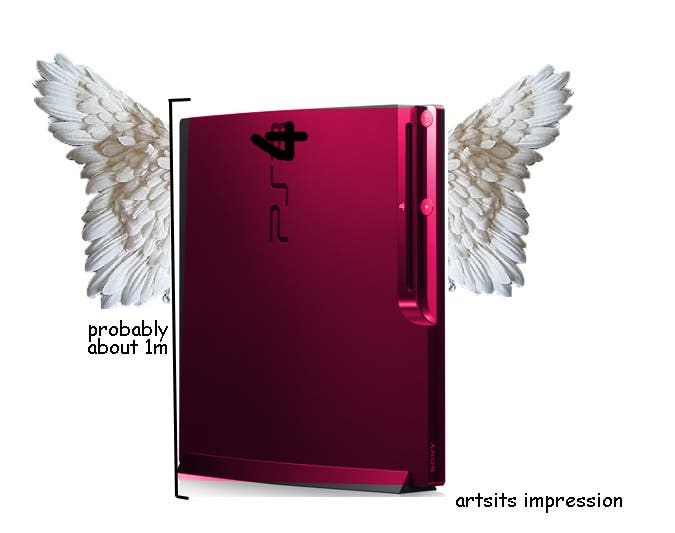
"Well, PlayStation 4 gives you a lot of power. A lot of subtlety and nuances in the lighting, and the cinematography and the animation, pretty much at all levels. So you just get higher definition in everything. When you want to play with subtleties and nuances, having more details and more colours on your palette is very interesting."
I try to hide my disappointment; I was hoping for something more from Cage than "higher definition". I'm also hoping for more than that from PlayStation 4. But to be fair, he has probably signed a cast iron non-disclosure disagreement that specifies he is not allowed to so much as admit the console runs on electricity.
And perhaps he's right. We should stop asking stupid questions about PlayStation 4 and enjoy these last days of PS3, of which Beyond: Two Souls is looking to be a highlight. To what extent it looks and plays differently to Heavy Rain is yet to be seen; it certainly looks and plays like a David Cage game. But that's no bad thing. No one else makes games quite like David Cage, and this is shaping up to be his most intriguing and visually arresting effort yet.
Besides, at least we know it's pink.
